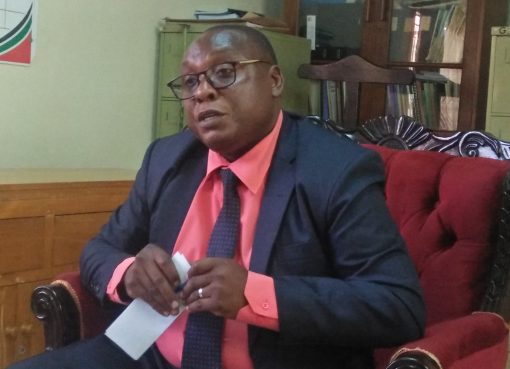The National Government has created various strategic and policy interventions to promote adoption of a digital economy in line with the Big Four Agenda and the Vision 2030.
The Ministry of Information Communication and Technology (ICT), Youth Affairs and Innovation Chief Administrative Secretary (CAS) Maureen Mbaka, further stated that the strategic and policy interventions had positioned Kenya as an ICT hub in the region.
“According to the World Bank report titled ICT competitiveness in Africa, Kenya is one of the leading countries in ICT development in Africa with Morocco and Nigeria. Kenya is, therefore, a leader in digitalization in both private and public sectors with a growth of roughly 25 percent in internet penetration in the periods 2001 to 2016,” Mbaka added.
She further stated that the country’s vibrant ICT sector is a critical driver and enabler to socio-economic development where technology and innovation are employed to achieve strategic goals, advance the economy, and provide solutions to developmental challenges.
Speaking on Thursday when she officially launched the 2nd Nation Digital Summit in Mombasa, Mbaka noted that robust technology plays a vital role in promoting socio-economic growth and productivity in other sectors of the economy.
“It is on this premise that the Government of Kenya has developed and put in place an enabling policy, legislative and institutional framework that emphasizes the importance of technology and innovation in achieving Kenya’s developmental goals,” she added.
The CAS stated that among the interventions put in place by the national government include enactment of the National ICT Policy – which is designed to realise the potential of the digital economy by creating an enabling environment for all citizens and stakeholders through facilitating universal access to ICT infrastructure and services all over the country.
Mbaka further said that the Digital Economy Strategy for Kenya has created a five year roadmap to operationalize the Digital Economy Blueprint geared towards transformation of an economy into a digital one.
She said that the policy document recognizes five fundamental pillars of digital government, and business, infrastructure, innovation driven entrepreneurship and digital skills and values as catalysts of a robust digital economy.
“The Digital Economy Blueprint and the Digital Economy Strategy both recognize the cross-cutting issues necessary to support the five pillars, one of them being the existence of a Data Protection framework. For these reasons the Data Protection Act was enacted in November 2019 that also established the Office of the Data Commissioner,” Mbaka added.
She announced that the government had laid down over 9,000 kilometers of the National Fiber Optic Backbone Infrastructure (NOFBI) across all the 47 counties in its quest to adopt a digital economy in line with the Big Four and Vision 2030.
“We have made significant milestones with respect to ICT infrastructure and statistics show that in Kenya more than 85 percent of Kenyans have access to the internet,” she added.
She further indicated that through the Ajira Digital Program, thousands of youth have benefited from free skills training to work online and explore the digital space opportunities.
.“Further, the ICT Ministry encourages innovative youth in the country to take advantage of one of our programs known as the Huduma Whitebox- a one-stop shop for anyone who wants to present, share or sell their idea, innovation, invention or solution. Through the website, whitebox.go.ke, the youth can forward their innovations and ideas for promotion and support including facilities being awarded to qualified start-ups,” she added.
She stated that the ICT Ministry is at the forefront of ensuring that Kenya realizes the full potential of the digital economy by creating an enabling environment for all citizens and stakeholders and by enabling the country to become a more prosperous participant in the global economy.
On the education sector, Mbaka said the ICT Authority has also piloted the SchoolNetproject targeting 9,600 students and 200 teachers in 13 schools across the country.
“SchoolNet initiative is part of the government’s efforts for sustainable solutions for school connectivity to spur learning and utilization of the digital devices,” she stated.
The ICT CAS further stated the government formed a taskforce last year to develop Data Protection Regulations to enable practical implementation of the data protection act.
She indicated that the team further developed General Regulations that set out the procedure in registering Data Controllers and Data Processors.
By Galgalo Bocha





